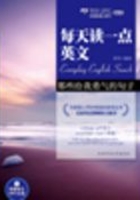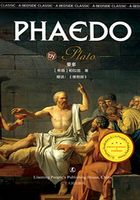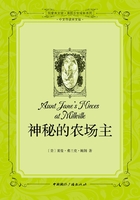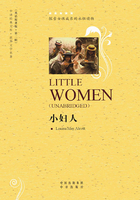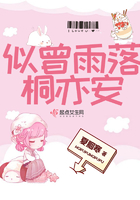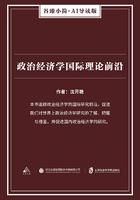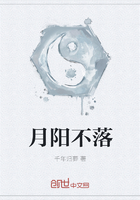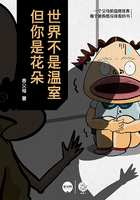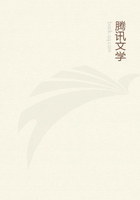The brown paper envelope is a corn cake
On it father's words are baked
Open the envelope in one corner
Like take a bite
The sweet corn gladdens my heart
Each sound of exhortation
Each word of encouragement
Brings my dear parents to my side
Mother says: don't begrudge spending money on food
What matters is good health
Father tells me: raise your head like a real man
Get down to work
That's the duty of a country man
The drifting days are hard to count
Letters from home are like corn cakes
Corn cakes baked by mother
That appease my hungry longing,
My hungry longing for home.
— "Letter from Home" by Zhou Liang
The Left-behinds
Writing a report is no easy task.
If 30% of a report depends on the writer's own creativity, then the rest depends on interviews. Rather than being written, one could say that a report is "walked out" by a reporter. After determining the topic of a report, its success depends on the quality of its interviews and the reporter's ability to engage with the interviewees. You should be at ease when interviewing the secretary of a provincial party committee, and yet also be passionate when talking to ordinary people. At the same time, you must have the patience and curiosity to find out the truth. I wholly agree with Zhou Zhengbao, the literary critic, that interviews aren't necessarily about the facts, but about sharing personal experiences, and the inspirations and emotions that come with them.
A few years ago, in order to write Upholding the Hope of Tomorrow: A Report on the Hope Project, Village Teachers in China and A Warning from China's Poverty, I traveled from the northwest to the southeast, and have been to old revolutionary bases such as Taihang Mountain and Dabie Mountain. My journey took me to nearly seventy poverty-stricken counties in twenty-one provinces and autonomous regions. I interviewed numerous young school dropouts and over a hundred village teachers, and gained a substantial amount of first-hand material. That experience engraved itself upon my soul. The personal insight I had acquired helped me to develop a fresh understanding of the basic education system in rural areas, as well as a more meaningful relationship with the subjects in my interviews. At times I even experienced strange and sudden outbursts of inspiration.
This was also the case when I conducted research for this report. After collecting materials and consulting resources on the topic, I opted for the clumsy method of looking for young migrant workers of the post-80s and post-90s, and interviewing each one individually in order to shed light on their working lives.
With the overall structure of the report in mind, I decided to conduct my field study in two of the poorest villages I could find. I would closely examine both the old and new generations of migrant workers in order to investigate the differences between their respective living conditions and experiences.
Yang Xiaoning, the magistrate of Tangxian County in Hebei Province, is an old friend of mine. We knew each other through the Hope Project when he was still the secretary of the county party committee some ten years ago. I got to Tangxian County in mid-June, 2010.
The poverty-stricken Tangxian County lies to the west of Baoding, and boasts both mountainous and agricultural terrain. It has an area of 1,417 square kilometers with 490,000 mu of arable land and a population of 566,000, 279,000 of whom are rural laborers and over 100,000 of whom are surplus redundant laborers.
Yang Xiaoning explained that with its large population concentrated in such a small area, as well as its large unemployed rural labor force, the county had a trump card. It could export its labor services. Every year, around 100,000 of its laborers are employed outside the county, bringing in an estimated income of 960 million yuan. In 2007, Tangxian was labeled "Chinese County of Labor Export" by the Ministry of Labor and Social Security. In 2009, it was defined by both Hebei and Beijing together as the "source of housekeeping personnel for Hebei and Beijing."
Xiaoning asked me if I had any specific requirements for the interview. I asked him to find me a couple of villages that had sent many of its laborers to work elsewhere. Xiaoning told me that would be easy, since there were many such villages.
The Dragon Boat Festival was around the corner and the wheat was rolling in the gentle wind: Harvest season had arrived.
Yang Baolong from the County Labor and Social Security Bureau went with me to Kongjiazuo Village in Renhou District.
During the interviews I had conducted in the countryside over the previous few years, I had experienced several changes. The first was that country roads had become better and; especially after the implementation of the "village to village" infrastructure project, cars could now drive directly into villages. The second was that the rural population was becoming smaller and smaller. Many houses were locked, with a rusted padlock at the door and a backyard full of weeds. It is said that only a group of "603861" is left in the countryside ( "60" stands for old people, "38" for women and "61" for children).
I met Zhao Zhenru, chief at the village office of Kongjiazuo Village. He was in his mid-fifties and had the slim and well-toned body of a farmer. Whilst serving us tea, Zhenru gave us the village's basic credentials. Kongjiazuo was a big village, with 420 households and a population of 1,800 that was divided into six groups. The village had 1,630 mu of arable land and over 800 rural laborers. In the previous year, per capita income of the village had surpassed 4,000 yuan, over half of which was earned by exporting its labor service. Over 300 laborers worked outside the county permanently, not including those who worked here on an irregular basis.
When he heard that I wanted to know more about the first generation of migrant workers, Zhenru asked, "How would you actually define the first generation of migrant workers?"

